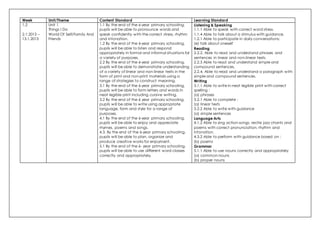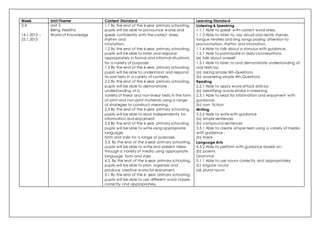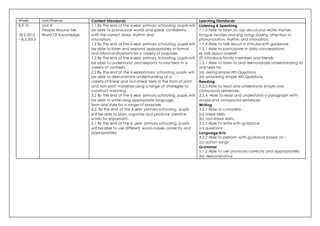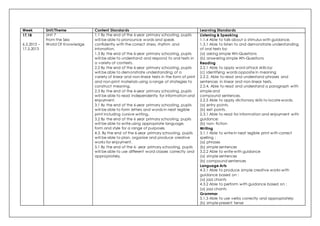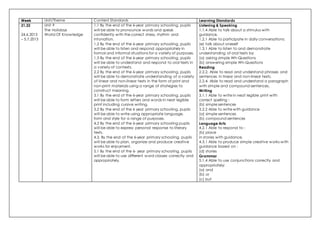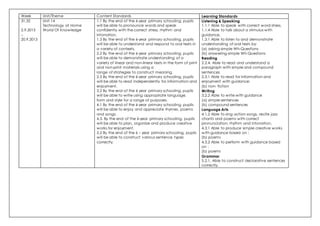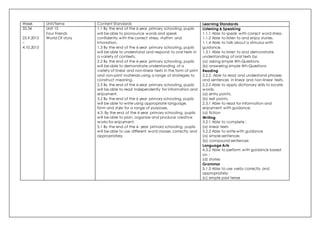This document outlines the content and learning standards for 6 units taught over 18 weeks in a primary school. Each unit covers topics like health, family, neighborhood, and pets. The standards cover areas like speaking, listening, reading, writing, language arts and grammar. Specific skills are listed for each standard, such as speaking with correct pronunciation, reading sentences, writing sentences, enjoying poems and using nouns/pronouns correctly.
